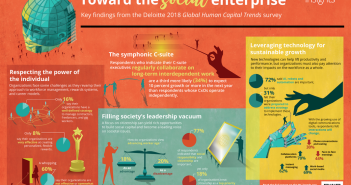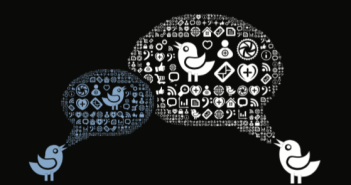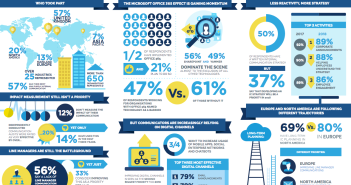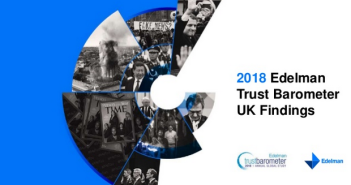
Complex skills in the workplace and what it means to design for them
Editor’s note: This article uses the book Ten Steps to Complex Learning as its reference and discusses how learning should be designed for complex tasks.

Editor’s note: This article uses the book Ten Steps to Complex Learning as its reference and discusses how learning should be designed for complex tasks.

Editor’s note: I know I’m blowing my own trumpet here but I’m proud that Nigel Paine and I have reached 100 episodes of our From Scratch podcast. To celebrate, Nigel Paine talks to Elliott Masie, curator of the Learning2018 conference in the US.

Editor’s note: Deloitte has just published its fifth annual human capital trends report. it is based on research of more than 11,000 HR and business executives around the world. There is so much in here but it is well worth reading. The chapter on learning and careers focuses on the need for organisations to develop a learning culture.

Editor’s note: It’s interesting to see the effect of removing HR from this organisation. There is a danger that the way the organisation operates is dehumanised. It’s intriguing to see that HR has been removed but there remains a culture team and a learning team. Maybe L&D will co-exist with robots!

Editor’s note: New research shows that there is no link between a student’s preferred learning style and the outcome of their learning. This isn’t the first research to come to this conclusion. Time to stop using learning styles in L&D.

Editor’s note: This in-depth look at digital body language raises some interesting questions and challenges for L&D. How can learning professionals currently measure digital body language and what value does it offer now and in the future?

Editor’s note: This is a good guide to help get started using Twitter. The platform is a great resource for learning professionals so if you aren’t using it then I’d encourage you to get started. I’d also add that it’s OK to use it as a news feed too – simply follow the people and sources that interest you.

Editor’s note: This is a superb read. Yes, Donald Clark owns an AI company but he makes some great points here about online learning. Read the comments too – this feels like where the conversation about learning technologies should be.

Editor’s note: I’m a big advocate for technology but recent events – fake news, data manipulation etc – serve to remind us that not is all rosy with the world-wide web. This piece reminds us of some of the pitfalls.

Editor’s note: L&D might have some lessons to learn here. In the education sector, technology that nudges students to engage in learning has the opposite effect. Employers need to understand how best to deploy such approaches to avoid unintended consequences.

Editor’s note: This morning’s #ldinsight chat on creativity got me thinking about creative thinking, which is an important part of creativity. This talk provides some good examples of how to think more creatively.

Editor’s note: What do you know . . . technology is a significant barrier to internal communications. There are some interesting stats and insights here, taken from a recent piece of research into internal communications in more than 650 organisations. The research provides some good tips on the most effective ways to communicate with employees.

Editor’s note: A comprehensive list of tools to ensure your web offerings are accessible to all.

Editor’s note: This is useful research for establishing what institutions and media Britons trust. The research also provides some insight on businesses and why trust in them is relatively low. Some good big picture data on trust here.

Editor’s note: Facilitation seems to be an important skill set for L&D professionals. So what makes an effective facilitator? This article summarises the thoughts of a group of experienced facilitators and highlights six key skills.
